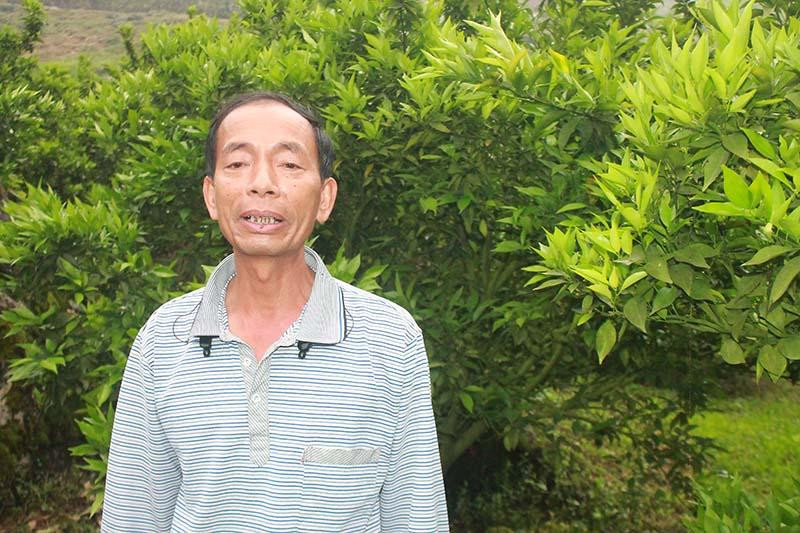
In an early days of April, Hanh led reporters into the orange orchard on the vast green hill. He said that the oranges were being cultivated in accordance with organic standards, and he has had a bountiful crop which has brought big profits.
Hanh is now deputy chair of Pa Cop Organic Farm Cooperative, which has 10 members and grows 27 hectares of oranges and 20 hectares of plums. Hanh alone grows 9 hectares of oranges, 2 hectares of longans and 6 hectares of mangoes.
Like Hanh, many cooperative members have shifted to green cultivation, using only organic fertilizer. This cuts costs on fertilizer and protects the soil and environment, and brings high yields.
In the past, Hanh and other households in Pa Cop relied on nonorganic fertilizer which was very costly and caused soil degradation. Since shifting to organic farming, the cost on fertilizer has fallen by half, and the land is fertile.
“We strictly follow a green farming process and don’t use chemical plant protection and fertilizer products. Therefore, products can sell for high prices,” he said.
In 2018, he harvested more than 30 tons of oranges from 3 hectares of orchards and pocketed profit of VND900 million. In 2020, with 6 hectares of orange orchards, he collected VND2.4 billion in revenue and made a profit of VND1.9 billion.
As for the latest crop, each hectare brought revenue of VND650 million and profit of VND500 million. With 8 hectares of oranges, he earned VND4 billion. He made another profit of VND1 billion from 2 hectares of longan.
Hanh said he uses every dong he has to buy land. With the VND5 billion worth of profit from the orange orchards, he has bought 10 more hectares of land in Na Ka Valley (Moc Chau), where he plans to grow plums and oranges.
Secrets of the farmer
Hanh said he has special farming know-how which can help him have high yields and earn big profits. Plants can grow well if the soil is loose and porous. Meanwhile, many years ago, when abusing chemical fertilizer, orange trees often suffered root rot and yellow leaves.
The farmer then visited the Cao Phong orange growing area to learn how to deal with the disease. However, the method could not help: the roots cracked, which affected growth and the trees could only bear fruit again after some years.
In 2020, he learned why the roots rotted and he was shown how to detoxify the soil – irrigating the foot of trees with microbial yeast. The beneficial bacteria help release nitrogenous fertilizers that have accumulated for a long time in the soil.
Next, he bought soybean seeds and sprinkled them around the orange trees. The sprouted soybean seeds made the soil porous, creating an aeration system that provided oxygen to the soil. The amount of residual nitrogen in the soil is absorbed by the soybean plants and converted into organic nitrogen in the bean stem.
In Pa Cop, farmers use many ways to ‘detoxify’ soil, such as using water hyacinth or banana stalks to increase the resolution of nitrogen accumulated in soil. As bananas stalks are hollow, they can absorb nitrogen well.
According to Hanh, orange trees are affected by diseases. But instead of using chemical pesticides, farmers in Pa Cop now choose other methods to protect trees, rather than chemical pesticides. They soak garlic, chili, galangal and citronella with water for about a week, and then spray orange trees to prevent pests.
In the rainy season, when many pests appear, farmers create traps and baits hanging on tree branches to catch and repel harmful insects, butterflies, and yellow flies.
The farmer also revealed that he waters trees after it rains. He explained, on sunny days, exhaust fumes from factories go up into the sky. When it rains, these substances will go to the ground, causing damage to fruit trees. So, necessary to water trees to wash away rainwater to keep the trees healthy.
Chu Khoi